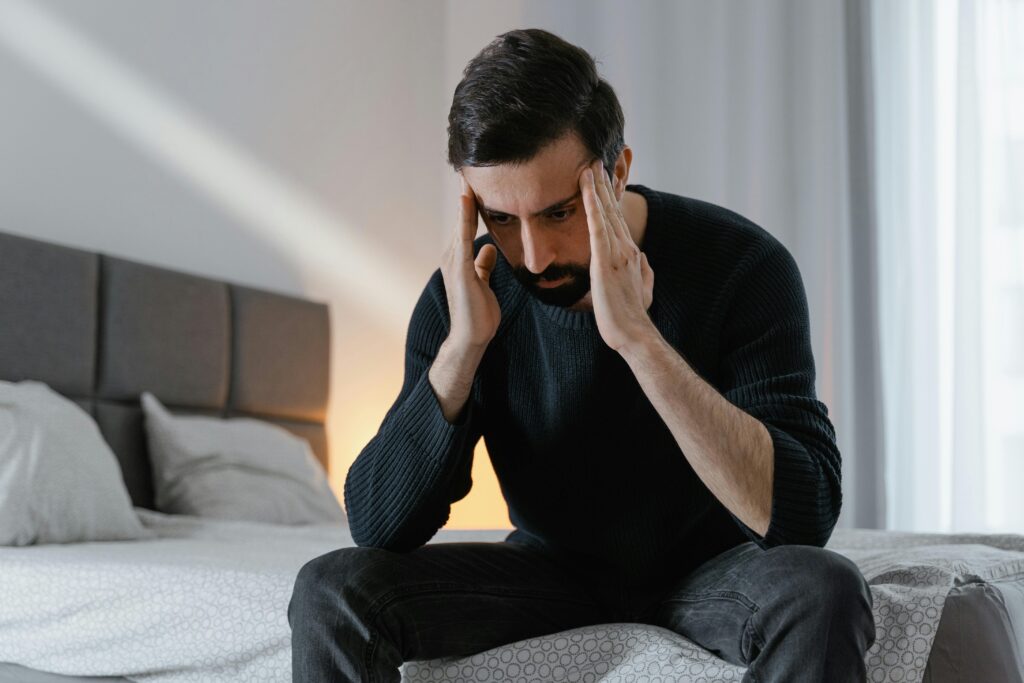
Anxiety can deeply influence every part of a person’s life. It can disrupt daily routines, strain relationships, hinder professional progress, and diminish one’s sense of well-being. Whether it manifests as a persistent feeling of unease or in sudden, intense episodes, anxiety can take many forms. Despite the challenges it presents, anxiety is a highly manageable and treatable condition.
At Willow Springs Healing Center, we believe that no one should have to face anxiety on their own. Our mission is to provide empathetic, all-encompassing care that leads to meaningful and lasting relief, empowering individuals to reclaim their confidence and take control of their lives.
Anxiety disorders can vary significantly in how they appear, each with unique symptoms, triggers, and effects. Identifying the specific type of anxiety someone is experiencing is a vital first step toward creating an effective, personalized treatment plan. Below are some of the most common anxiety disorders:
Each of these conditions requires a customized approach to treatment. That’s why compassionate, individualized care is essential in helping people manage their symptoms and regain a sense of control and well-being.

Anxiety is a common mental health condition that touches nearly every area of a person’s life—emotionally, physically, and socially. While occasional anxiety is a normal response to life’s pressures, persistent and overwhelming anxiety can become disruptive and debilitating. It extends beyond fleeting nervousness, often presenting as a combination of emotional distress and physical symptoms, underscoring the seriousness of this condition.
Anxiety often manifests physically, not just mentally. It activates the body’s natural stress response—commonly referred to as the “fight-or-flight” reaction. This response can bring on a range of physical symptoms, including rapid heartbeat, shallow breathing, muscle tension, sweating, and digestive discomfort. When anxiety becomes chronic, these symptoms can persist and contribute to longer-term health concerns such as insomnia, frequent headaches, and digestive disorders.
Sustained stress from chronic anxiety can wear down the body over time. Elevated cortisol levels—associated with long-term anxiety—can weaken the immune system, increase inflammation, and heighten the risk of serious conditions such as high blood pressure, heart disease, chronic pain, and autoimmune issues. Additionally, many individuals adopt unhealthy coping strategies like overeating, excessive caffeine consumption, or substance use, which may intensify these effects. Early intervention through lifestyle changes, therapy, and medical support is essential to protect both physical and mental health.
Anxiety takes a considerable toll on emotional well-being and cognitive function. It often triggers excessive worry, persistent fear, and a constant state of unease. These symptoms can cloud thinking, interfere with decision-making, and make it difficult to concentrate or relax. Without proper management, anxiety can escalate and lead to depression, leaving individuals feeling emotionally exhausted and mentally overwhelmed.
Emotionally, anxiety may present as irritability, mood instability, or hypersensitivity to everyday stressors. Fear of failure, judgment, or rejection can damage self-confidence and lead to avoidance behaviors. In some cases, individuals may experience panic attacks—intense bursts of fear accompanied by physical sensations like chest tightness, dizziness, or breathlessness. Therapeutic intervention can play a critical role in managing these emotional challenges and helping individuals build resilience and regain a sense of control.
Anxiety can deeply affect a person’s social life and relationships. For many, the condition leads to withdrawal from social situations due to fears of embarrassment, rejection, or criticism. Tasks that seem routine—such as attending events, starting conversations, or making eye contact—can feel daunting. Individuals with social anxiety disorder may find even basic interactions overwhelming, which can result in isolation, diminished self-esteem, and a greater risk of developing depression.
Within personal relationships, anxiety may cause miscommunication, emotional detachment, or an overreliance on others for reassurance. Some people become overly dependent on their partners or friends, while others withdraw altogether—both of which can create tension in romantic, family, or work relationships. Anxiety in the workplace can lead to reduced productivity, avoidance of collaboration, and missed career opportunities. Rebuilding social confidence often involves a combination of therapy, peer support, and self-help strategies designed to strengthen interpersonal skills and create healthy, meaningful connections.

Anxiety can show up in many forms—impacting the body, behavior, and mind. While it’s natural to feel anxious during challenging or high-pressure situations, anxiety disorders go beyond typical stress responses. They involve persistent, intense symptoms that disrupt daily life. Recognizing the signs across these different areas is key to identifying when anxiety may be more than a passing phase.
When anxiety is triggered, it activates the body’s stress system, leading to a range of physical responses. These symptoms can differ in intensity and may mimic other health issues, which can cause confusion or additional worry.
Anxiety often influences behavior, prompting people to make subtle or noticeable changes in how they interact with the world. These behaviors may develop as coping mechanisms but can become problematic if left unchecked.
The internal effects of anxiety can be just as powerful as the physical and behavioral ones. These psychological symptoms shape how a person thinks, feels, and reacts emotionally, often leading to significant mental distress.

Effectively managing anxiety often calls for a multifaceted, personalized approach—one that combines therapy, lifestyle modifications, and, when necessary, medication. Since anxiety affects individuals differently, treatment plans should be customized to reflect each person’s unique symptoms, goals, and preferences. While therapy alone may be enough for some, others benefit most from an integrative approach that fosters long-term stability and reduces the risk of recurrence.
Therapy is often the cornerstone of anxiety treatment and typically serves as the first step toward recovery. It enables individuals to explore the underlying causes of their anxiety, reframe negative thought patterns, and build practical coping skills. Several evidence-based therapy models have proven especially effective:
In cases of moderate to severe anxiety, medication may play a valuable role alongside therapy to help alleviate symptoms more effectively. Treatment decisions should always be guided by a mental health professional.
Incorporating daily wellness habits can significantly strengthen emotional resilience and support recovery. Even small, consistent changes can have a powerful impact over time.
A supportive social environment is vital for managing anxiety. Connection—whether through loved ones or professionals—can provide comfort, accountability, and perspective.
For some, natural or alternative therapies can be effective additions to conventional treatment. These should always be discussed with a healthcare provider before use, especially when combining with medication.

If you or someone you love is facing the challenges of anxiety, know that you don’t have to go through it alone. At Willow Springs Healing Center, we offer compassionate, expert care through flexible outpatient programs at our Concord, MA location.
Our center is open 24/7, providing accessible support whenever you’re ready. Our treatment approach is designed to fit into your life—helping you heal while continuing to meet work, school, or family responsibilities. We focus not only on therapy but also on empowering clients to integrate recovery strategies into their everyday routines.
Don’t wait. Your journey to healing and lasting change can begin today. Contact us: